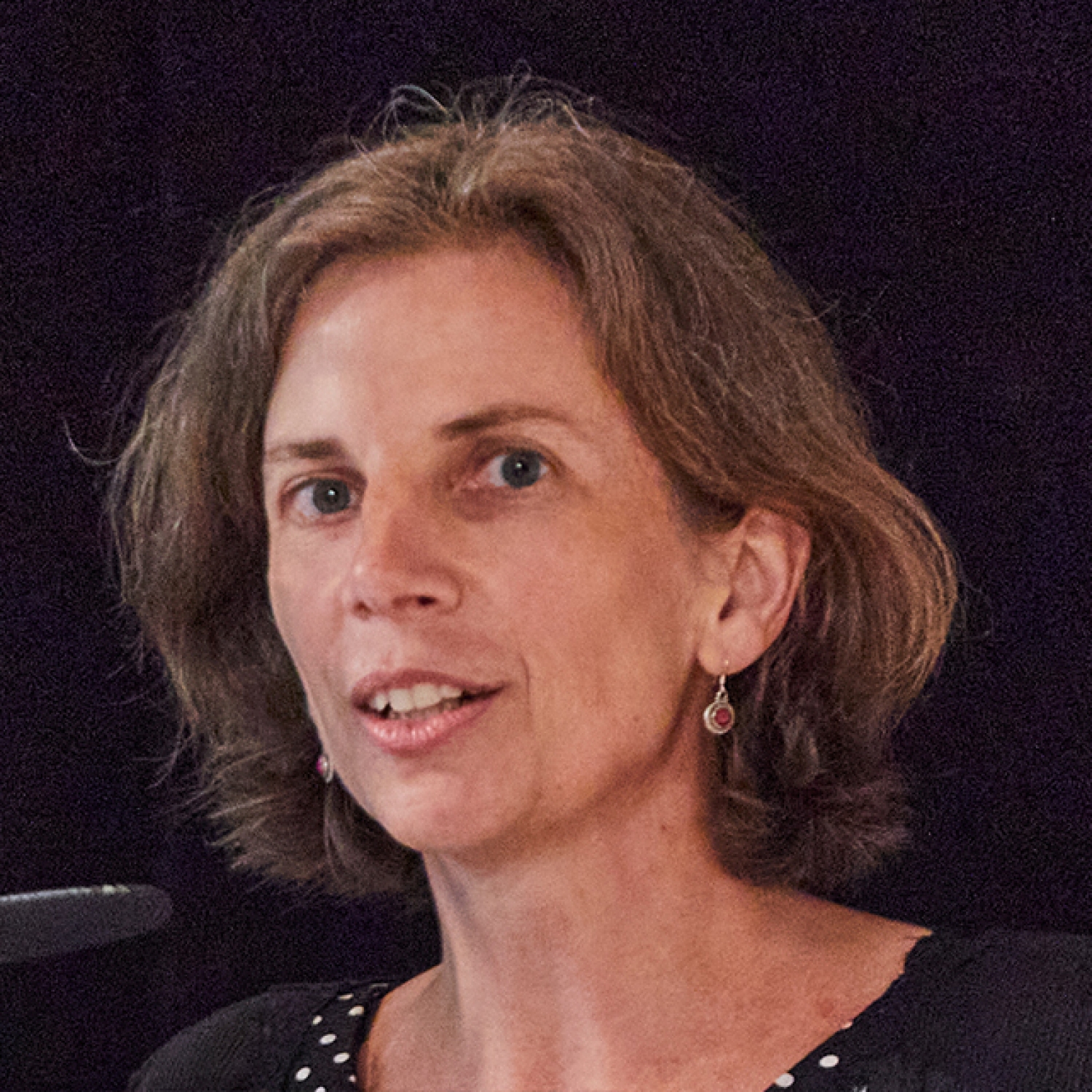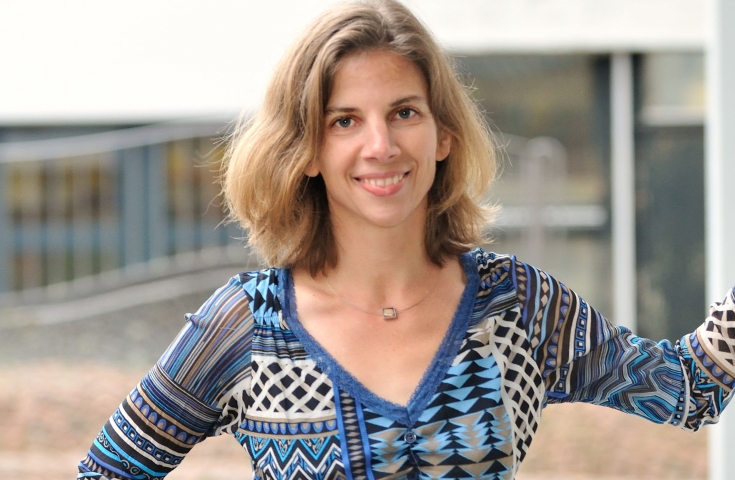Preparing officers for the exceptional case

The story of the digital course has its origins in an area far removed from both policing and Germany. In a large project funded by the ERC (European Research Council), Kirsten Mahlke (link in German), a professor of cultural theory and cultural studies methods at the University of Konstanz, examined narratives about terror and disappearances recorded by the respective person's family members after the Argentinian military dictatorship. What does it mean for families when a relative disappears? How do you mourn the dead when there is no grave, no physical body to make their death tangible? When the project ended, the researchers found that their results extended much further, into other situations where people experience a sudden death without being able to access the person's body. "When a person dies from unnatural causes, whether by suicide, murder or accident, and they suddenly disappear from their family's lives, it can leave behind deep trauma in those who cannot physically take in the reality of this death", Mahlke explains. While the situation is different from state-sponsored terror, the experiences are similar to those of Argentinians whose relatives "disappeared" under the military dictatorship.

"In fatal accidents, sometimes it is difficult to access the body, for example, if it is badly disfigured or located in a place that is inaccessible. We asked ourselves, how can the police inform relatives of a death in a way that doesn't traumatize them?"
Kirsten Mahlke, a professor of cultural theory and cultural studies
This question gave rise to the idea of training police officers to deliver death notifications to relatives as professionally as possible. The aim is to teach them, for example, how to assist family members with accessing a relative's body, or to explain their last words or the events of an accident in such a way that relatives have the chance to grasp their family member's death and then come to terms with it better.
Learning by doing
This was Kirsten Mahlke's first transfer project, and she says that plenty of chance opportunities led her to it. While reading a special edition of "Der Spiegel" about death, she came across an article by Johannes Meurs. The police officer from Kleve in North Rhine-Westphalia explained how problematic it is for members of his own police force to deliver the news of a death to family members. Through a survey of people who had learned about the unnatural deaths of family members the previous year, Meurs and his colleagues learned how traumatic the delivery of the news had been for these people and that, ever since, they had been affected by experiences ranging from depression to an inability to work.
Afterwards, he set about working to change this situation: adapting the structure of the police department in Kleve accordingly, preparing his colleagues for this task and setting up a team to ensure that the news of the death was delivered responsibly.
A door opener and supporter
"Johannes Meurs really opened the door for me", Kirsten Mahlke remembers. "When I called him up, he said he would be willing to support us with his perspective as a police officer and contribute his expertise to developing our planned digital learning application. The project was to be carried out with students from the Duisburg location of the University of Applied Sciences for Police and Public Administration in North Rhine-Westphalia (HSPV NRW). It grew into a very lively and long-lasting collaboration in which we discussed the topic with students and the way it had been taught in the past".
In addition to Meurs, Tobias Trappe, an ethics lecturer at HSPV NRW, also provided "exceptionally valuable support to the team at the University of Konstanz" according to Mahlke. "These two collaboration partners – along with staff from the Freiburg region police force – worked with us to finish the training programme, in spite of all kinds of obstacles".
A very taxing job
An interesting observation for the researchers: All of the police officers in training with whom they spoke had thought about the topic of delivering death notifications before. Many of the policing students were from families where their fathers or grandfathers had already been police officers. Based on what they had heard in their own families, the students were aware that their job would involve matters of life and death. "They were really concerned about witnessing death, for example, if a colleague were to die while on duty", Kathrin Mahlke says.
"The thing that I had not been aware of: It wasn't just a matter of being afraid that someone could die while on duty, but rather, that there are so very many suicides among police officers because the job is so psychologically taxing. And, on top of this, there is also the task of delivering death notifications to a deceased person's relatives."
Kirsten Mahlke
Most of the future police officers we interviewed had already completed their internships on the beat. According to Mahlke, this is precisely the type of work where police would be called to a place where a body has been found. This means that delivering death notifications is not just the responsibility of experienced police detectives, but rather a situation that especially new police officers encounter.
Directed by orders from above
The Konstanz-based researchers found the collaboration with individual police officers to be very cooperative, informative and open, also with regard to sharing their own perspectives and experiences. "They were even open to criticism", Kirsten Mahlke emphasizes. "However, one challenge was that the police force, as an institution, gives the strong impression of being closed off from the outside world. Its inner structure is strictly hierarchical; officers' actions are always directed by orders from above. It probably wouldn't work any other way".
The structure is based on and justified by the existing legal requirements – not the desires, needs and critiques, for example, of the family members affected. "For the police, transparency and openness to outside views are not the top priorities. This is why our offer to develop a new course beyond what had been previously taught about delivering death notifications was perceived as criticism of the institution of policing", she adds.
"The digital learning application consists, among other things, of a sequence of important information on the individual phases in the notification of death. This starts at the scene of the accident, so that you don't forget to pick up important private items from the road after a road accident, for example, because they are personally important for processing the death. If there is a backpack with personal belongings in it, for example, it is important to store everything carefully so that it can be handed over with dignity. Dignified and not in any form that would shock the relatives even more. That was the first phase that we dealt with in the application." (Kirsten Mahlke)
Further information on the learning application
Thus, the team from Konstanz needed to provide solid documentation that the current process of delivering death notifications was not going optimally. The survey of more than 100 affected family members by Johannes Meurs and his colleagues laid the groundwork for explaining the need for the learning application. However, their results had to be communicated in such a way that they were not construed as criticism but, rather, as more generalizable findings. "From the start, I experienced the institution's willingness to reform itself from within and open up to criticism from civil society as very, very small, and it has remained this way. The success of the transfer project thus depended on the work of a few, very dedicated people in the police force."
The videos in the learning application recreate conversations with relatives. Source: Learning application "Todesnachrichten verantwortungsvoll überbringen" (Delivering death notifications responsibly).
Making the rounds
The police are organized by each federal state individually, which hampered the uptake of the learning application. There was no opportunity to present the learning application to all police academies at a central location. Kirsten Mahlke, thus, had to contact each state or each police academy individually. She noticed that there was only interest in the application at the places that Johannes Meurs and she contacted personally, and the level of interest was high. What about email marketing and brochures? These methods proved unsuccessful.
The results after making the rounds: In Berlin, the digital learning application is now a required component in the training of new recruits. At present, ten thousands of police officers have been trained in this way to deliver death notifications. In Brandenburg, the training is optional but, Mahlke says, there is strong demand for it. And in North Rhine-Westphalia, in Kleve, the model introduced by Meurs has been expanded to include the learning application. Individual places in Bavaria and Saarland have expressed interest in the programme; and in Baden-Württemberg, the learning programme is also used by future police officers. Individual members of the police force from around Germany regularly take part in the digital course offered by the Academy of Advanced Studies at the University of Konstanz.
Limits to transfer
Ensuring successful transfer of the project throughout Germany would require visiting each federal state to present the learning application. Is there time for this alongside a job as a professor? "Isn't that ultimately always the question with transfer activities?" Kirsten Mahlke asks.
"Time is probably the factor that is underestimated most. Nothing about transfer projects runs on its own. There is no public institution waiting for a humanities scholar to tell it what it could, potentially, do differently."
Kirsten Mahlke
When publishers market a learning application, they have staff who know how to write business plans in addition to their own marketing and advertising departments. "Marketing is not something that you can do as a side job. And this is definitely not possible alongside a full-time professorship with the corresponding teaching load and self-administration responsibilities", Kirsten Mahlke explains.
Yet, there are sometimes positive surprises. Recently, Mahlke received an email from a former course participant who is now a detective chief inspector in Wuppertal. The police officer wrote that she now wants to introduce the learning application in teaching, not just at the HSPV NRW but also via multipliers in local district police forces. "I guess some things do actually run on their own: Some police officers use the course in very creative ways. The authorities think about what fits their needs best. Sometimes they show our films, sometimes they share information from the programme, or the quiz", Kirsten Mahlke concludes.
Marion Voigtmann
Verwandte Artikel:

